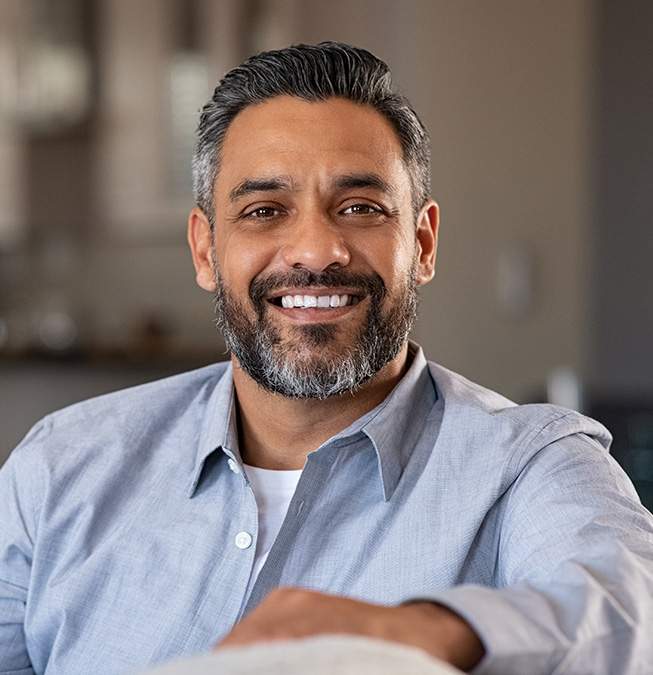- 20% OFF NEW PATIENT APPOINTMENT
- NOW ONLY £76 (USALLY £95)
- BOOK NOW
How has Putney dental practice Ethicare survived and thrived during four years of economic hard times?
When London dental practice Ethicare first opened its doors on January 14th 2008, it was the start of an exciting new year full of promise. It was also, unfortunately, three months before the start of a recession.
I spoke to Dr Glafcos Tombolis, who runs Ethicare with his wife Klaudia, to find out how this Putney dental practice, which offers Invisalign and Inman Aligner treatment in the London area, has flourished despite the credit crunch. What lessons has Glafcos learned as the 4th anniversary of the practice approaches?
Question: When you opened up, what were the aims of Ethicare?
Dr Glafcos Tombolis (GT): Our aims were the same then as they are now. I suppose the clue is in the name; we have always wanted to provide an ethical, caring service to patients. Providing a choice of plans is so important as is being open with patients and educating them about treatment – so that they can make informed decisions about their dental care. Explaining procedures and consequences will avoid patients opting for unnecessary treatment.
Q: Why Putney?
GT: Back in 2008, it was quite difficult to find a site with existing planning permission allowing it to be opened as a dental practice. I really wanted to find a vacant site rather than just take over an existing practice; so that our team could really put its mark on the area and forge a strong identity. The Putney site fitted the bill perfectly and was within easy commuting distance of where I live in Chiswick. More importantly, the neighbourhood and the people are nice – there is a genuine community spirit.
Q: What would you say about working in Putney?
GT: I’ve got to know the area and the people a lot better over the years – which is one of the great things about the job. I’ve even given talks in schools; primary school kids have a surprisingly deep interest in dental matters! I like to think people know me in the area. I run to and from work each day – it’s a bit of an obsession – and patients will wave or stop for a chat, which is always welcome.
Q: How many staff worked there at first?
GT: When my wife Klaudia and I first opened the practice’s doors, there were just four of us. Now there are ten of us; so you can see we’ve grown quite a bit.
Q: What are the biggest changes to dentistry since you opened the doors of the practice?
GT: I don’t think the technology has changed in that the machines, instruments and medicines available in 2008 are still available now. But these technologies have become more advanced – something we are keen to reassure nervous patients of.
It is also worth remembering that we set up three or four months before the recession started to bite. This has made things challenging for all dentists and challenging for patients too as they have to be even more careful about the treatment they spend their money on – we are determined that essential treatment should remain affordable. Making sure that patients can receive all the treatment they need under one roof has helped us through these tough times.
Q: How has the practice changed?
GT: I like to think the practice has matured. There are things I wish I’d known before we first started out but it’s inevitable that you should learn things along the way. For instance, I’ve learnt more about effective management, compliance and legislation. Of course, dental work has to be subject to regulation and filling out the paperwork more quickly and effectively allows us all to spend more quality time with patients. As Ethicare has grown we have been able to plough back more money into the business – further raising the quality of service.
Q: Have you got any particular plans for the future?
GT: Yes, we have just started offering dental plans which spread the yearly cost of dental treatment into bite-sized monthly payments for patients and offers perks such as worldwide dental emergency cover.
We are constantly trying to offer a more personalised, tailored service for customers; considering ‘when do you want to be seen?’ and ‘what treatments do you want?’ The busier we get the more we can offer specialist appointments and provide things like Saturday opening hours.
While we want to become busier, we don’t want to offer a ‘conveyor-belt’ service – each patient has different needs. We think we’re getting the balance right so far!

Lorem ipsum dolor sit amet, consectetur adipiscing elit, sed do eiusmod tempor incididunt ut labore et dolore magna aliqua. Ut enim ad minim veniam, quis nostrud exercitation ullamco laboris nisi ut aliquip ex ea commodo consequat. Duis aute irure dolor in reprehenderit in voluptate velit esse cillum dolore eu fugiat nulla pariatur.








Sed ut perspiciatis unde omnis iste natus error sit voluptatem
accusantium dolor emquesit voluptatem laudantiu.
Sed ut perspiciatis unde omnis iste natus error sit voluptatem accusantium dolor emquesit voluptatem laudantiu.
I have been really happy with my experience at Ethicare Dental Practice. From the moment I walked in, everyone was kind, reassuring, and professional. They took the time to explain things properly and... Read More
Loved the service, especially being a wheelchair user. They have made me feel very well taken care of, had a tooth removed and they were the first dentists to give me th after care instructions as wel... Read More
I’ve been a patient of Glafcos Tombolis for the past eight years, and I couldn’t be happier. When I first visited his practice, my teeth were in a bad state, and as a nervous patient, I found dent... Read More
Best orthodontist I've seen! Priti took the time to talk through everything with me, gave me a really honest opinion and helped me understand all of the history and future options with my teeth. She w... Read More
Glafcos has been my dentist for many years and I wouldn't consider going anywhere else. He is extremely patient and thorough and makes time to explain all procedures fully and answer any questions. ... Read More